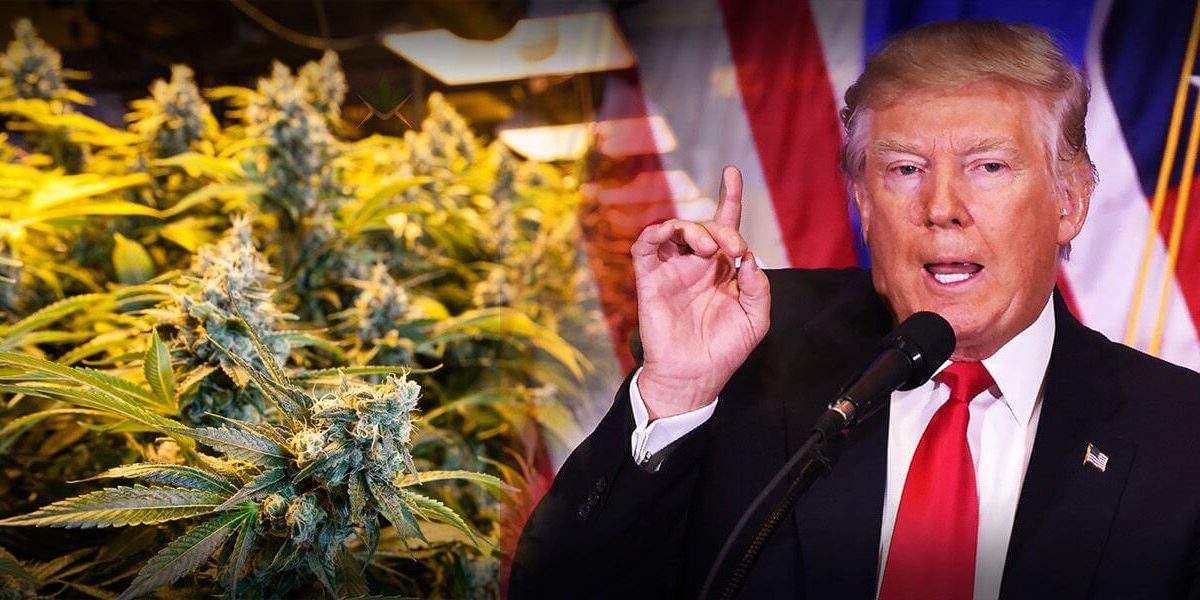On December 21, Donald Trump gave American hemp lovers a surprise. The President of the United States signed a Farm Bill – an act already approved by the Congress that effectively allows the cultivation of hemp at the federal level. The legal act known as ‘Hemp Farming Act of 2018’ removes hemp from the list of forbidden crops (at the federal level), thus giving green light to farmers living in all those states whose legislature has not yet regulated the case of industrial hemp.
What does the “Hemp Farming Act” really change?
Before December 21st the cultivation of industrial hemp had been in many cases regulated differently at the state level and at the federal level; the latter still recognizing it as a felony (aftermath of the anti-hemp madness of the 1930s combined with the moral panic of the Nixon era, if you ask us). In practice, however, many states allowed the cultivation of hemp as well as manufacturing and marketing of its derivatives, such as CBD hemp oils. Such a conflict between state and federal law is not unusual in the United States (as seen on the example of the states that have legalized ‘recreational’ or medical marijuana), but although it is sometimes downplayed by the authorities, it can certainly complicate things for many farmers uncertain of the fate of their crops.
The new law classifies hemp as an “agricultural commodity”, equating it (except for the restrictions on the permissible THC levels) with all other industrial crops. The adoption of the “Hemp Farming Act” thus ushers in a stable development perspective for the growing tycoons of cultivation and processing of industrial hemp – such as the thriving hemp industries of North Carolina or Virginia. It is anticipated that in the former volume of hemp grown may soon surpass that of tobacco, the traditional crop of the region.
OK, so have the US just … legalized CBD?
If the cultivation and processing of industrial hemp has just been fully legalized, does this mean that the United States have also legalized products from CBD, such as CBD hemp oils? In fact yes, but… Until now, the status of cannabidiol in the US has been quite weird: while more and more states have legalized the medical or “recreational” use of cannabis, the non-psychoactive CBD has apparently found itself in the blind spot of legislation, remaining illegal. This led to some bizarre situations such as police in Utah raiding stores with healthy food in search of hemp oils.
With the new regulations coming into force, this situation should be changing – although the Act does not explicitly mention the CBD, most interpretations of the provisions clearly state that abolition also applies to the derivatives of hemp, such as cannabidiol. For the CBD industry, this means huge changes, and the largest producers (and their legal departments) are already preparing for the incoming bonanza.
However, we should also bear in mind the skeptics’ point of view. Not only does the “small legalization” introduced in the “Hemp Farming Act” avoid mentioning CBD, it is that the allowance of industrial hemp cultivation stems from the extension of the interpretation of “research purposes” caveat present in the original Farm Bill. This means – as critics point out – that, although many barriers will disappear for hemp farmers (for example ones related to running a bank account), CBD purveyors may still face some problems – for example when transporting their products between states. Although, without a doubt, we are dealing with a big breakthrough, the CBD market is certainly facing a few turbulent months. Luckily we don’t have this problem in EU and in Poland…







